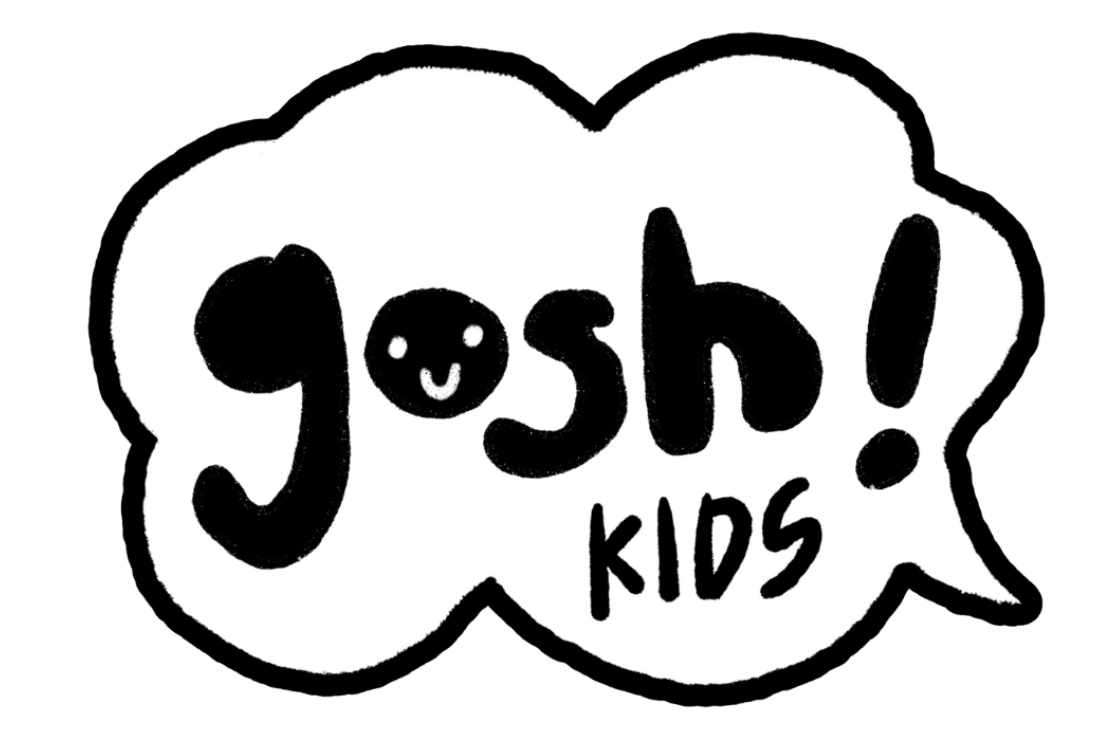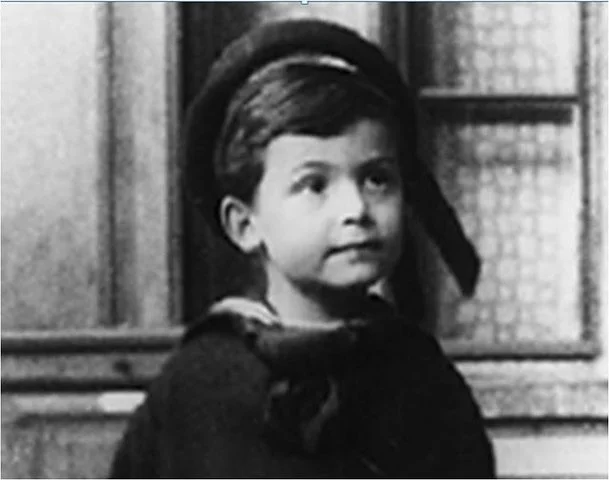Exceptional Environments For Exceptional Children
In a moment of impulse, Henrik Karlsson ordered 42 biographies of exceptional figures — writers, mathematicians, philosophers, composers — and started skimming through them. He had one objective: to find out what made them exceptional.
Amongst all the biographies he studied, Karlsson discovered a commonality: exceptional people experienced a unique childhood in an exceptional environment.
Exceptional environments, that’s the story for today.
Know the table stakes
These were some of the figures Karlsson studied:
Virginia Woolf, Lev Tolstoy, John von Neumann, Blaise Pascal, Alan Turning, Bertrand Russell, Rene Descartes, Mozart, Bach.
(You can Google their names to find out what they'd accomplished)
I don’t recognise any but two names, but that's what I loved about it: most weren’t household names, just people who contributed extensively to their field and achieved high-level discoveries, but fell short to the likes of Shakespeare, Einstein or Darwin we know of today.
The focus of many biographers and readers often centre the persona of a famous individual, particularly the moment they achieved fame or recognition. But within the earlier stages of their lives prior to their triumphs, lies elements worth paying attention to.
And that was what Karlsson had set out to do.
95% of the 42 biographies he studied showed evidence of an exceptional environment in which these people grew up in. Truth is, there could’ve been a million reasons why successful people became successful, and I’m not denying the advantages that comes with wealth, genetics, or plain luck. But I want to zoom into an objective point of view which I believe is essential in any given circumstance:
To raise children in exceptional environments, parents must first know what the table stakes are to make an environment exceptional.
But first, let’s understand why the milieus you grow up in can have a profound impact on your view of the world.
John Von Neumann
The point of culture
“Once you see the boundaries of your environment, they are no longer the boundaries of your environment” -Marshall McLuhan
What made Virginia Woolf, Virginia Woolf, Blaise Pascal, Blaise Pascal, and J.S Mills, J.S Mills, was attributed to spending much of their formative years in a rich, intellectual environment.
According to Karlsson’s research:
Virginia Woolf never attended school but was educated by her father, who then brought about his network of influence — painters, philosophers, writers — to hang out with him and his daughters. Invitation to “dine and converse" with his children was a regular occurrence, forming a circle of “literary people, clever young writers, barristers” that “discussed the universe and the reform movement.” The importance of intellectual stimulation was clear to Woolf's father.
Blaise Pascal, early pioneer of game theory and probability theory, was also homeschooled by his father. Pascal’s father, despite being a math genius himself, did not want to teach young Pascal math due to it’s distraction from other intrinsically rewarding pursuits, like literature. After discovering their son had a gift in math, the family decided to abandon all pursuits and relocate to Paris so that Pascal could expound on his talents around the greats.
Michel Montaigne’s father intentionally employed servants who were fluent in Latin so Montaigne could learn Latin as his mother tongue.
J.S Mills similarly spent his adolescent years at his father’s desk, assisting his father in writing dissertations on economics, and often “running over to Jeremy Bentham’s house to borrow books and discuss ideas.”
While the parents provided the access to the building blocks that set up the foundations of their children's intellect, the first instinct was to curate a culture — the framework of beliefs, values, customs, traditions, and behaviours — that ultimately paved the way to their destinies.
Teaching is essential, but the point of the culture was to assemble a sanctuary of intellectual exchange for the children.
You are what you surround yourself
All the accounts above were back then. Today, however, society has evolved into a technological sphere that makes our ideas connected in unprecedented ways (think AI). The idea of hiring only Latin speaking servants to surround your kids all day isn't plausible when you can learn remotely, but I reckon you can inhabit a thing or two about crafting a purposeful surrounding for your kids.
Robert Shiller once said, “Your thoughts are not really your own thoughts. They percolate in from other places and from other people." So true in our little ones.
Toddlers as young as two years old learn by observing others. They start desiring what those around them desire, pick up unspoken knowledge, and adapt to their peer group. We’re all unique, but everything that comes out of us is a combination of past experiences, interactions and affections that we consciously (or unconsciously) piece together through your senses.
This ability to internalise culture is constant, yet unavoidable.
It’s crucial to surround your kids with one that aligns with what you believe is good for them. Culture is, then, another word for your social environment. But I don’t want to leave it to institutions to decide for my children, let alone to chance — there’s power in the intentionality of curating a culture so personalised that it becomes a sanctuary of wisdom and creativity.
Maybe, you and I could develop an obsession for that.
Little adventurers
5 cultures that make an exceptional environment
Here are five cultures I want to inhabit in my own child's life. Maybe you could too.
1. Do-er and learner
This is the root of everything. Learning to learn is the first skill your child needs to transform from helpless to capable.
It begins by curating an environment where children can develop agency. Teach your kids how to find the solutions on their own. To act it out, to solve problems.
One powerful, underrated method: YouTube University (for all ages).
A motivated 9-year-old can surpass traditional limits. They can master diverse skills like timber framing, semiconductor design, or bakery expertise. No longer bound by mentors or institutions, their progress depends on their own dedication, curiosity, and supportive parents. Transform your child from a passive consumer into an active creator.
The longer we disallow children from having the agency to act on the world, the harder it becomes for them to visualise it in the first place.
2. Reader
I’ve written about this before. If doing/learning is the root of everything, then reading is the nutrients required for growth.
Reading is by no means a passive exercise. The reader becomes the book. When your child reads, they undergo an intimate exchange with the author’s mind. It shapes us into someone new.
Having trouble to get your kids to start reading? Try this:
✔️ Start small with a couple of paragraphs. Don’t force read. Bond over reading.
✔️ Discover books related to their interests.
✔️ Choose books that are aesthetically pleasing or interactive. Activate the visual-mental muscles.
✔️ Lead by example. It’s simple math: if you don’t read, your children won’t either.
3. Not settling for less
In the examples mentioned above, the grownups had a certain perspective of their children: they believed in their ability to understand difficult subjects, so they included them in important conversations and meaningful tasks, and gave them high-level assignments beyond what they're supposed to know.
One thing kids in this generation need to do more: not settling for less just because they're not at that 'level'.
Just because it isn't within their markers of intellect, doesn't mean they should not (or cannot) be exposed to it. Ultimately, it isn’t about the outcome — to know or not know — but in getting your children to acknowledge that it's perfectly fine to desire for more. Avoid stifling your child's craving for more intellect, creativity, or experiences. It's a marker of progress.
4. Community
While it’s important for children to be okay being alone, they should never journey alone.
Community is where children learn to thrive along with one another, bouncing off ideas, expressing themselves, learn interpersonal skills.
Community spurs children to do something bigger than themselves.
A community shouldn’t consist of just children of the same age, but one where people from all walks of life and world views come together. Like how Woolf’s father intentionally brought his friends into the family circle, kids should be exposed to a network of influence beyond their intellectual capabilities.
A little note: consuming within a great community calibrates your kids’ internal gauge for great ideas. Who you let into your kids’ circle of influence is who they will become. If you don’t like the community they’re surrounded with, you might not like who your kids become. Choose carefully.
5. Observation
Being exposed to a myriad of experiences from a young age will, for sure, develop a panoramic world view in them. Even better, ones outside your zone of familiarity.
This is where I’m personally trying to do more: involving my child in daily activities, including work, to observe how I solve problems and control my life.
As the head mentor of Gosh! Kids, I have this privilege of permitting my son to join in my classes as an observer. He is only two years old, but I’m starting to believe that being consistently exposed to concepts above your intellect (in this case, a two year old observing a class on creative journaling, ISO, shutter speed, or aperture priority) will expand your experiential capacity.
Of course, most jobs don’t allow that. But point is to foster a culture where raising your children is of equal importance to your work. Once you see it in this light, you’ll begin to empower your kids.
The short of it?
Joseph Wells once wrote, "The purpose of a parent is to raise confident, self-sufficient kids. Your job is to make yourself obsolete".
He's right.
Curating a culture of exceptional qualities is the aim. Making yourself obsolete is the point. The goal of an education is to develop agency in your kids. By no means is this a simple task. Like the pursuit of excellence, it demands sacrifices of the highest order.
But frankly speaking, crafting an exceptional social environment does not require much sacrifices. The secret lies in the way we view children: as capable of competence, as craving meaningful work, as worthy to be included in serious discussions.
“We can learn to view them like that, but it is a subtle and profound shift in perception, a shift away from the way we are taught to view children”, writes Karlsson.
Don’t obsess over getting good grades, or what other kids are doing. Be obsessed with something even better: building an exceptional culture that surrounds them each day.
Be well,
Miss G (@gladyssoh)



